Themed collection Environmental Science Atmospheres Recent Review Articles

A perspective on the reactions of organic peroxy radicals with HO2
The reactions of peroxy radicals (RO2) with HO2 are relevant under low NO conditions. Here, available data on RO2 + HO2 are reviewed, and gaps where future research is needed are highlighted.

Environ. Sci.: Atmos., 2025,5, 737-755
https://doi.org/10.1039/D5EA00023H
A framework for describing and classifying methane reporting requirements, emission sources, and monitoring methods
A methane framework based on a set of taxonomies and a common lexicon that provides a common structure in which data requirements, emission sources and monitoring methods can be described.

Environ. Sci.: Atmos., 2024,4, 1203-1217
https://doi.org/10.1039/D4EA00120F
Optimising air quality co-benefits in a hydrogen economy: a case for hydrogen-specific standards for NOx emissions
Hydrogen may play a major role as an energy source to support net zero but combustion leads to emissions of NOx, a key air pollutant. Delivering optimal air quality co-benefits may need more ambitious hydrogen-specific emission standards developing.
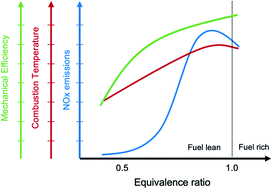
Environ. Sci.: Atmos., 2021,1, 201-207
https://doi.org/10.1039/D1EA00037C
A new advance in the pollution profile, transformation process, and contribution to aerosol formation and aging of atmospheric amines
Atmospheric amines from various sources undergo a variety of homogeneous and heterogeneous reactions to contribute to the overall process of aerosol particle formation and further affect the climate.
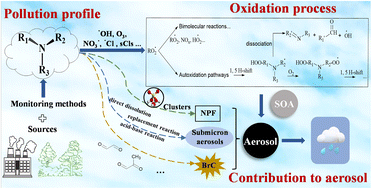
Environ. Sci.: Atmos., 2023,3, 444-473
https://doi.org/10.1039/D2EA00167E
Enhancing DTT assays for reactive oxygen species detection in atmospheric particulate matter: key factors and methodological insights
Accurate detection of reactive oxygen species (ROS) in particulate matter (PM) is essential for assessing the oxidative potential (OP) of airborne pollutants and their associated health risks.

Environ. Sci.: Atmos., 2025,5, 865-878
https://doi.org/10.1039/D4EA00158C
Solar radiation management: a history of the governance and political milestones
An overview of the history of Solar Radiation Management (SRM) governance shows many developments, but they have largely occurred within a handful of countries in the Global North. An uptick in recent developments suggests SRM is gaining traction.

Environ. Sci.: Atmos., 2025,5, 656-673
https://doi.org/10.1039/D5EA00008D
Towards developing an indoor emissions inventory for the UK: challenges and future directions
The development of indoor air pollution inventories for different environments is crucial to quantify contributions of multiple and time-dependent sources and activities to air pollutant emissions and to mitigate the potential health consequences.

Environ. Sci.: Atmos., 2025,5, 151-170
https://doi.org/10.1039/D4EA00121D
Microplastics in Asia: overcoming sampling, analysis, and regulatory challenges to protect the ecosystem – a review
Microplastics (MPs) are emerging contaminants that require attention in sampling, analysis, and characterization in both indoor and outdoor air pollution to mitigate the potential dangers they pose to public health and the economy.

Environ. Sci.: Atmos., 2024,4, 1331-1351
https://doi.org/10.1039/D4EA00100A
Aerosolized algal bloom toxins are not inert
Harmful algal bloom events are increasing; aerosol particles from sea and lake sprays carry algal bloom toxins that react with atmospheric oxidants, creating transformation byproducts. Inhaling these toxins with air pollutants may pose health risks.

Environ. Sci.: Atmos., 2024,4, 1113-1128
https://doi.org/10.1039/D4EA00078A
Carbon monoxide as an indicator of indoor air quality
Carbon monoxide is a priority pollutant that is suitable as an indicator for assessing indoor air quality. Monitoring should preferably be embedded in an intelligent network of different sensors.
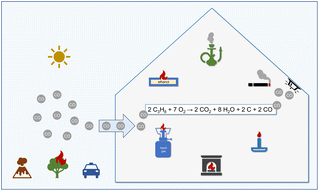
Environ. Sci.: Atmos., 2024,4, 291-305
https://doi.org/10.1039/D4EA00006D
Electrical charging of snow and ice in polar regions and the potential impact on atmospheric chemistry
Different processes can lead to high electrical field strengths in snow and ice in polar regions with the potential to initiate free radical processes and a number of other chemical modifications.

Environ. Sci.: Atmos., 2024,4, 144-163
https://doi.org/10.1039/D3EA00084B
The potential environmental and climate impacts of stratospheric aerosol injection: a review
This article reviews scientific evidence for the potential environmental impacts of stratospheric aerosol injection, a form of solar radiation geoengineering.

Environ. Sci.: Atmos., 2024,4, 114-143
https://doi.org/10.1039/D3EA00134B
Uncertainties in mitigating aviation non-CO2 emissions for climate and air quality using hydrocarbon fuels
The effects of aviation's non-CO2 emissions on climate and air quality are complex and relatively poorly understood. Mitigation measures need to be very carefully considered so that perverse outcomes do not result.

Environ. Sci.: Atmos., 2023,3, 1693-1740
https://doi.org/10.1039/D3EA00091E
Applications of the octanol–air partitioning ratio: a critical review
Although prediction methods exist for the partitioning between air and various environmental and biological phases, that do not depend on octanol, the KOA still serves a role as a single parameter quantifying compound volatility from different phases.

Environ. Sci.: Atmos., 2023,3, 1045-1065
https://doi.org/10.1039/D3EA00046J
Marine aerosol feedback on biogeochemical cycles and the climate in the Anthropocene: lessons learned from the Pacific Ocean
Marine aerosol feedback on biogeochemical cycles and the climate remains highly uncertain due to the complex interplay. This review highlights recent advances in our understanding of organic aerosols, nitrogen, and iron as well as cloud properties over the Pacific Ocean.

Environ. Sci.: Atmos., 2023,3, 782-798
https://doi.org/10.1039/D2EA00156J
Human skin oil: a major ozone reactant indoors
Much of the ozone that enters buildings reacts with human skin oils, both on occupants and on other surfaces. Products of these reactions influence human chemical exposures.
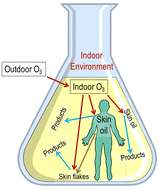
Environ. Sci.: Atmos., 2023,3, 640-661
https://doi.org/10.1039/D3EA00008G
Acetaldehyde in the indoor environment
Acetaldehyde is ubiquitous in the atmosphere. The relevant sources and the concentrations occurring indoors are discussed and evaluated on the basis of health-related criteria and guide values.
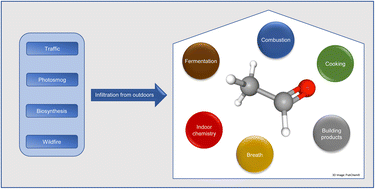
Environ. Sci.: Atmos., 2023,3, 474-493
https://doi.org/10.1039/D2EA00146B
Detection techniques for air-borne isocyanates based on fluorescent derivatizing agents
The high toxicity of isocyanate species in the workplace demands the development of sensitive techniques for the detection of isocyanates to protect workers from adverse health effects.
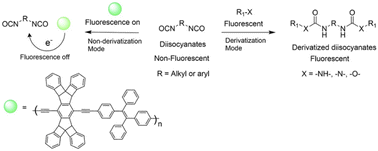
Environ. Sci.: Atmos., 2022,2, 1249-1258
https://doi.org/10.1039/D2EA00098A
Ecological and human health risks of atmospheric microplastics (MPs): a review
Microplastics (MPs) in the atmosphere are ubiquitous and persistent emerging pollutants which have been an environmental issue of global concern.
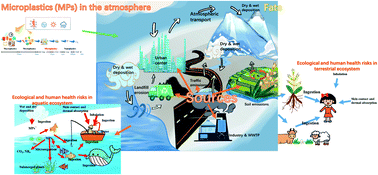
Environ. Sci.: Atmos., 2022,2, 921-942
https://doi.org/10.1039/D2EA00041E
Snow particles physiochemistry: feedback on air quality, climate change, and human health
During the last several decades, numerous researchers have provided evidence that physical and biogeochemical processes at air-snow/ice-water interfaces are very complex, and, in many cases, interlinked.
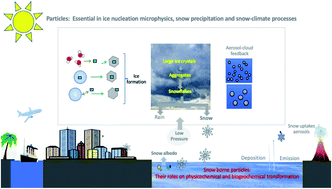
Environ. Sci.: Atmos., 2022,2, 891-920
https://doi.org/10.1039/D2EA00067A
Decarbonisation of heavy-duty diesel engines using hydrogen fuel: a review of the potential impact on NOx emissions
Hydrogen–diesel co-fuelling may reduce NOx and PM2.5 emissions if used in lower load construction machinery and HGVs. In high load applications such as electrical generators, emissions could be higher than pure diesel, unless further abated.
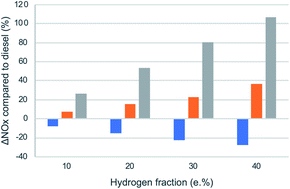
Environ. Sci.: Atmos., 2022,2, 852-866
https://doi.org/10.1039/D2EA00029F
Terrestrial carbon cycle: tipping edge of climate change between the atmosphere and biosphere ecosystems
Being a climate change nexus, the study on the carbon cycle depicts the existence of its mechanistic link with the atmospheric and biospheric environment.

Environ. Sci.: Atmos., 2022,2, 867-890
https://doi.org/10.1039/D1EA00102G
Review of methods for assessing deposition of reactive nitrogen pollutants across complex terrain with focus on the UK
We report on key findings and knowledge gaps identified regarding measurement and modelling techniques used to quantify deposition of Nr across complex terrain in the UK, which may represent up to 60% of land coverage across Great Britain.
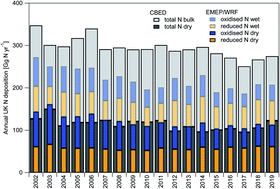
Environ. Sci.: Atmos., 2022,2, 829-851
https://doi.org/10.1039/D2EA00012A
Emerging investigator series: surfactants, films, and coatings on atmospheric aerosol particles: a review
Surfactants alter the physical and chemical properties of atmospheric aerosol particles.
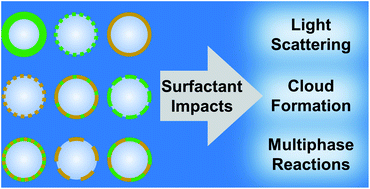
Environ. Sci.: Atmos., 2022,2, 775-828
https://doi.org/10.1039/D2EA00003B
Impacts of crop type, management and soil quality indicators on background nitrous oxide emissions (BNE) from Chinese croplands: a quantitative review and analysis
Crop types have significant impacts (p < 0.05) on the background nitrous oxide emissions (BNE) from soils. The annual BNE for China when considering the proportion of planting area is 0.69 ± 1.52 kg N–N2O ha−1.

Environ. Sci.: Atmos., 2022,2, 563-573
https://doi.org/10.1039/D2EA00033D
Particulate nitrate photolysis in the atmosphere
Particulate nitrate photolysis can lead to the formation of secondary inorganic and organic aerosols that affect climate, air quality, and human health.

Environ. Sci.: Atmos., 2022,2, 111-127
https://doi.org/10.1039/D1EA00087J
Methane detection and quantification in the upstream oil and gas sector: the role of satellites in emissions detection, reconciling and reporting
Satellites could revolutionise the way global oil and gas methane is reported. There are many barriers to overcome before satellites can play an active role in methane emissions reporting.
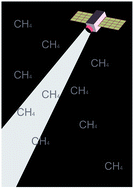
Environ. Sci.: Atmos., 2022,2, 9-23
https://doi.org/10.1039/D1EA00046B
Aging of atmospheric aerosols and the role of iron in catalyzing brown carbon formation
Iron in mineral dust can catalyze reactions with atmospheric organics that lead to the formation of brown carbon (BrC) that impact the climate in a number of ways.
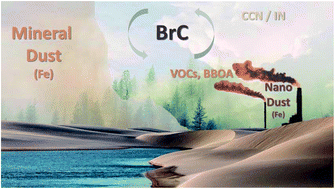
Environ. Sci.: Atmos., 2021,1, 297-345
https://doi.org/10.1039/D1EA00038A
About this collection
In addition to high quality research papers, Environmental Science: Atmospheres features topical review articles. Reviews will be added to this webpage as soon as possible after publication.